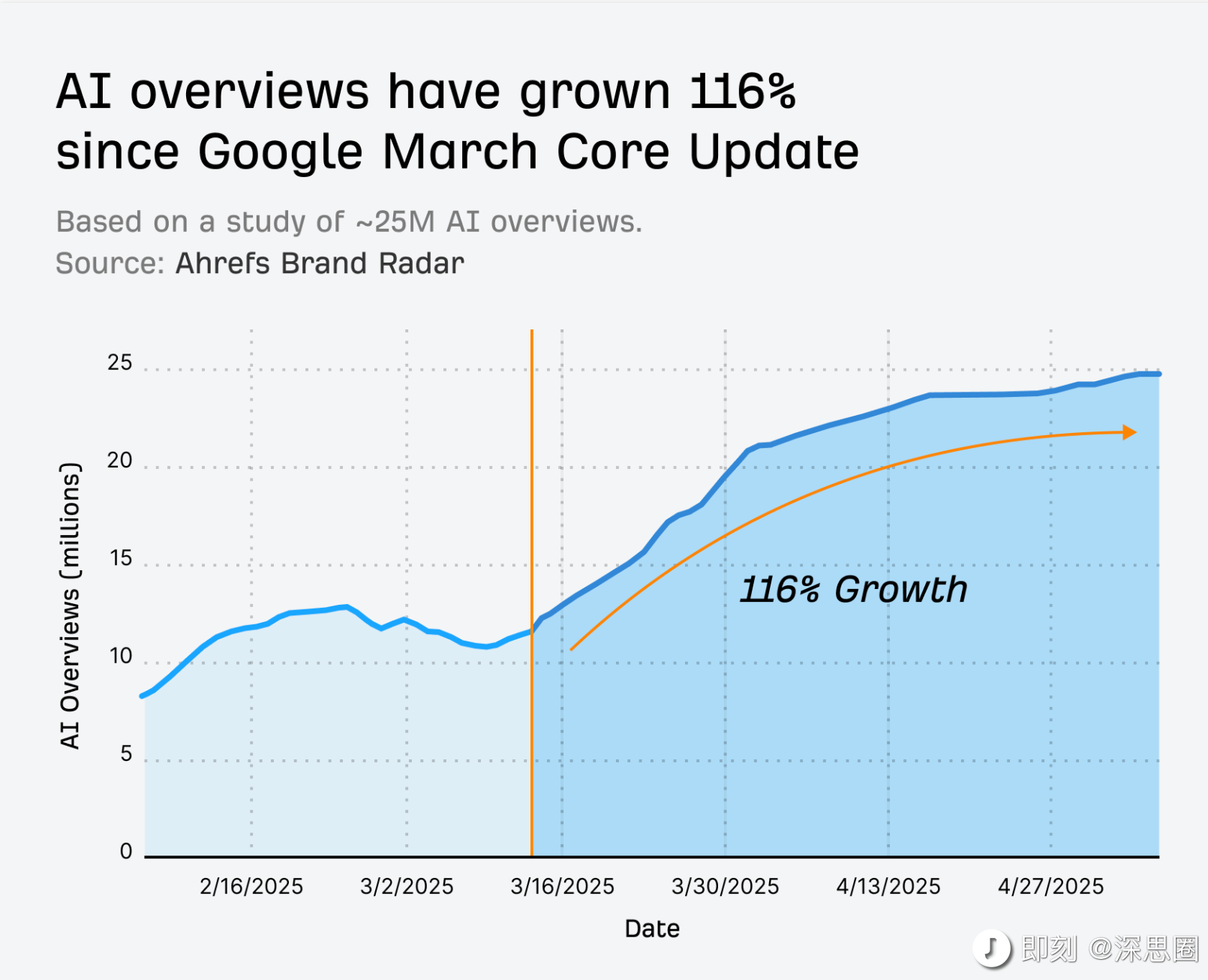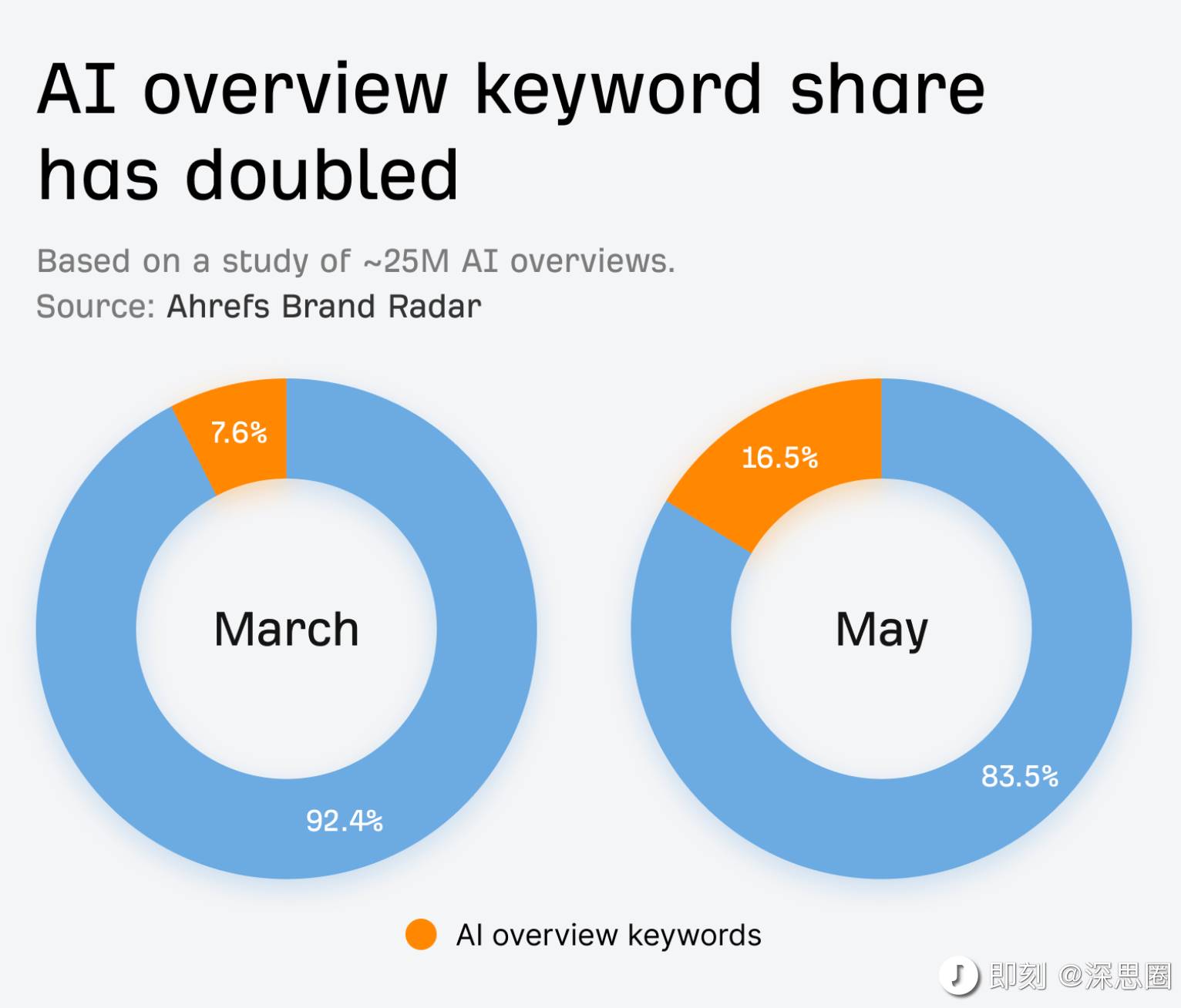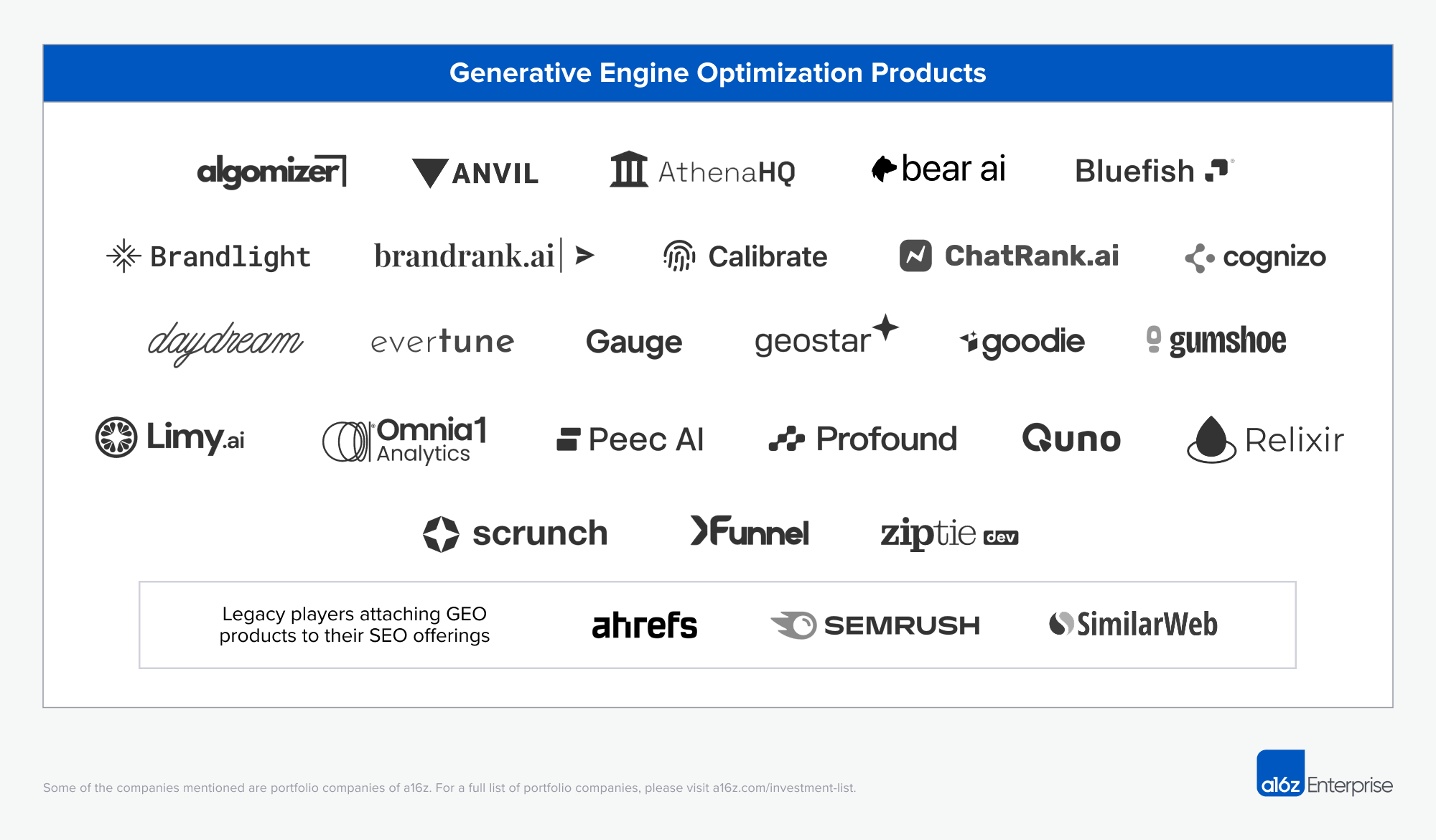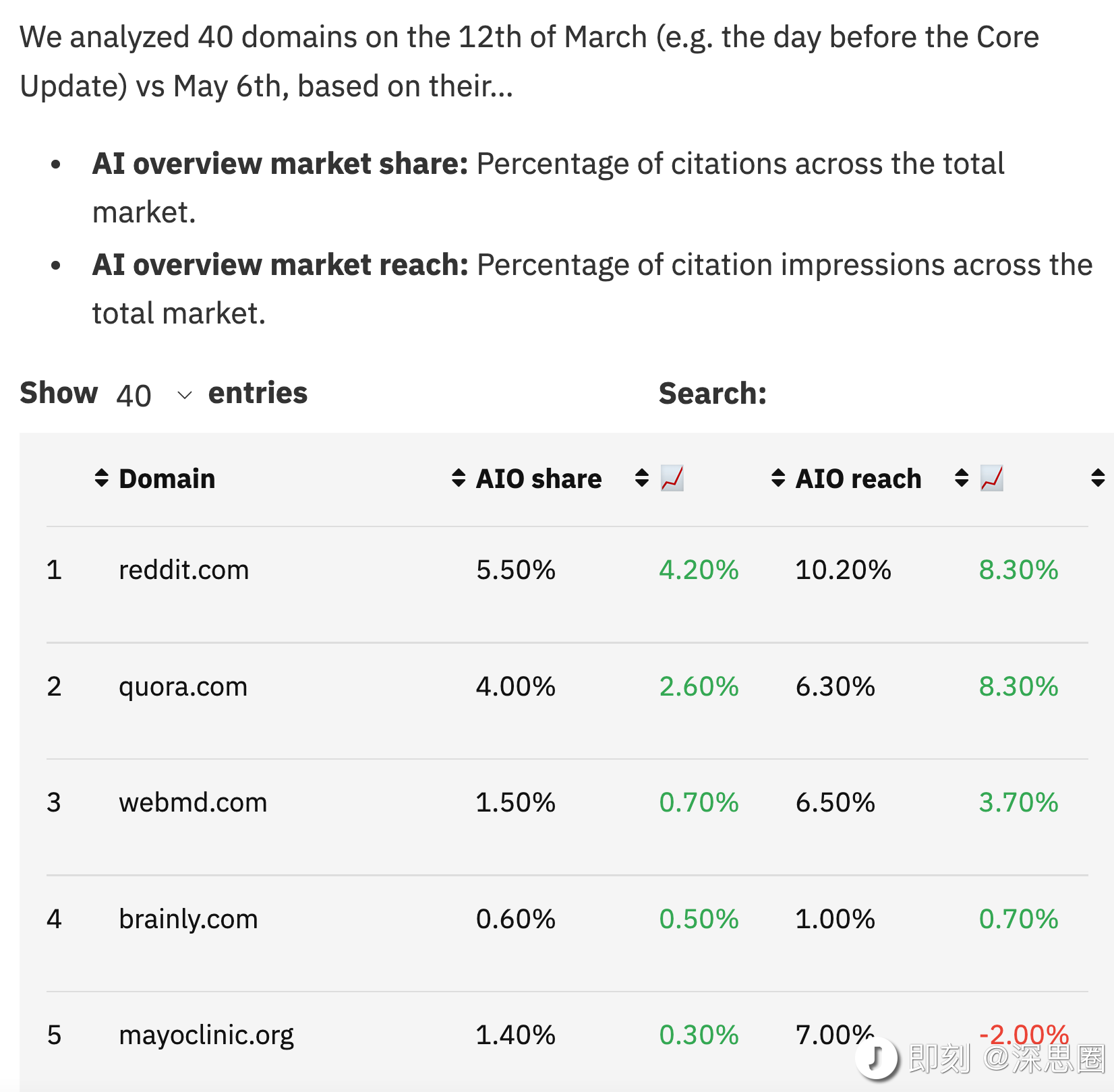
Have you ever wondered if the $80 billion SEO industry might be coming to an end? For over two decades, the search rules we've taken for granted—keyword ranking, backlinks, page optimization—are being completely overturned by a new set of game rules. When Apple announced the integration of AI-native search engines like Perplexity and Claude into Safari, Google's long-standing distribution monopoly began to shake. We are witnessing the most significant paradigm shift in search history: moving from the link-based search era to the generative engine optimization (GEO) era driven by language models.
This is not a gradual improvement, but a complete rewrite. Imagine that in traditional search, success meant your webpage appeared in the top search results. But in the GEO era, the definition of success has completely changed: Is your content directly cited in AI-generated answers? Does your brand occupy an important place in the model's "memory"? This transformation is reshaping the entire digital marketing ecosystem, where everything from content creation strategies to brand visibility metrics needs to be rethought. What I see is not just a technological update, but a fundamental reconstruction of business models and competitive landscapes.
[The translation continues in the same manner, maintaining the original structure and translating all text outside of HTML tags.]Despite the massive SEO market size, it has never produced a monopolistic winner. This phenomenon provides me with many insights. Tools that help companies with SEO and keyword research, such as Semrush, Ahrefs, Moz, and Similarweb, have all succeeded in their respective domains but none have completely dominated the entire tech stack (or grown through acquisitions like Similarweb). Each company has pioneered its own market segment: backlink analysis, traffic monitoring, keyword intelligence, or technical auditing.
SEO has always been fragmented. Work is distributed among agencies, in-house teams, and freelancers. Data is messy, rankings are inferred rather than verified. Google holds the algorithm keys, but no vendor fully controls the market. Even at their peak, the largest SEO players were merely tool providers. They lacked user engagement, data control, or network effects to become the central hub of SEO activities. Click stream data—records of users clicking links while browsing websites—can arguably be the clearest window into real user behavior. Historically, however, these data have been difficult to obtain, locked behind ISPs, SDKs, browser extensions, and data brokers. This made it almost impossible to build accurate, scalable insights without deep infrastructure or privileged access.

GEO changed everything. The key to this transformation is that large language models inherently work in a more transparent and predictable manner. While we cannot fully understand the internal mechanics of the model, we can comprehend its behavioral patterns through massive querying and analysis. This creates opportunities for a new generation of tools and platforms that can provide more precise and actionable insights than the SEO era.
Platforms winning in GEO will go beyond brand analysis, providing action infrastructure: real-time campaign generation, model memory optimization, daily iterations, and adjustments as large language model behaviors change. These systems will be operational. This unlocks an opportunity broader than visibility. If GEO is how brands ensure being cited in AI responses, it's also how brands maintain an ongoing relationship with the AI layer itself. GEO becomes the system of record for interacting with large language models, allowing brands to track their presence, performance, and results on generative platforms. Owning that layer means owning the underlying budget.
The Rise of GEO Tools and Platform Opportunities
This is more than a tool transformation; it's a platform opportunity. I believe the most competitive GEO companies won't be satisfied with mere data measurement functions. They will build their own model fine-tuning capabilities, learning from billions of implicit prompts across industries. They will have a complete closed loop—insights, creative input, feedback, iteration—observing large language model behaviors through differentiated technology and actively shaping them. More critically, they will find ways to acquire click stream data and integrate first-party and third-party data sources.
In my view, this is where the monopoly potential lies: not just providing insights, but becoming the channel itself. If SEO was a decentralized, data-adjacent market, GEO might be precisely the opposite—centralized, API-driven, and directly embedded in brand workflows. GEO itself might be the most obvious wedge, especially when we observe shifts in search behavior, but ultimately, it truly cuts into the broader performance marketing domain. The brand guiding principles and user data understanding underpinning GEO can equally drive growth marketing. This is how large enterprises build—software products capable of testing multiple channels, iterating, and optimizing between them. AI makes autonomous marketers possible.

Timing is crucial. Search is just beginning to transform, but advertising funds move quickly, especially when arbitrage opportunities exist. In the 2000s, that was Google's AdWords. In the 2010s, that was Facebook's targeting engine. Now, in 2025, that is large language models and platforms helping brands navigate how their content is ingested and cited by these models. In other words, GEO is the competition to enter model thinking.
A key trend I've observed is that successful GEO platforms are evolving from pure analytics tools to full-stack marketing operating systems. They not only tell brands how they perform in AI responses but provide tools for creating, optimizing, and distributing content to improve visibility in generative engines. This integrated approach creates stronger customer lock-in and higher lifetime value.
More interestingly, I see some GEO platforms beginning to explore predictive capabilities. By analyzing large language model behavior patterns, they can predict which types of content are more likely to be cited in future queries and which topics are about to become trending. This forward-looking ability provides brands with a significant strategic advantage, allowing them to position themselves favorably ahead of competitors.
I believe the true opportunity lies with platforms that can integrate GEO with the broader marketing technology stack. When GEO tools can seamlessly integrate with CRM systems, content management platforms, social media management tools, and analytics dashboards, they transform from standalone optimization tools into the core hub of marketing operations. This integration not only increases efficiency but creates new data insights and automation possibilities.
The Future of Marketing: Brand Memory Competition in the AI Era
In a world where AI becomes the front door for business and discovery, the question marketers face is: Will the model remember you? This question is more profound and complex than it appears. It's not just about brand awareness but about a brand's position in AI systems, the context of being cited, and relative importance compared to other brands.
I find the nature of this competition fundamentally different from traditional marketing. In the SEO era, brands competed for positions on search results pages. In the social media era, brands competed for user attention and engagement. But in the GEO era, brands compete for positioning and weighting in AI models' "memory". This is an entirely new competitive dimension requiring novel strategic thinking.
More intriguingly, this competition occurs not just between brands within the same industry but across industry levels. When users ask "best investment options", traditional financial brands might need to compete with tech companies, real estate platforms, and even cryptocurrency projects for AI citations. This cross-boundary competition blurs traditional industry boundaries, requiring brands to rethink their positioning and value propositions.
I believe successful GEO strategies must be built on a deep understanding of how AI systems work. This includes not just technical understanding but insights into AI training data, update frequencies, and bias tendencies. Brands need to understand different AI models' characteristics and preferences as thoroughly as they understood Google's algorithms. For instance, some models might favor authoritative content, while others might prioritize content's novelty or utility.
Looking long-term, I believe GEO will spawn entirely new marketing professions and specialized skills. Just as SEO experts became standard in digital marketing teams over the past twenty years, GEO experts will become indispensable roles in future marketing teams. These experts will need deep AI technology understanding, data analysis capabilities, content strategy thinking, and agility to rapidly adapt to technological changes.

I also see GEO's profound impact on content creation. Traditional content marketing focused on creating value for human readers. In the GEO era, content must be valuable to both humans and AI systems. This requires content creators to master new skills, understanding how to create content that attracts human readers while being effectively understood and cited by AI systems.
Ultimately, GEO is more than a new marketing strategy; it represents a fundamental transformation in how brands interact with consumers. In this new world, brand success is no longer just about how many consumers they can reach, but whether they can be chosen and recommended by AI systems at critical moments. This shift requires brands to re-examine their value propositions, content strategies, and technology investments to ensure competitiveness in an AI-driven future.
I firmly believe that brands that can understand and master the GEO rules early on will gain tremendous competitive advantages in the coming years. Those brands that cling to traditional marketing thinking may find their visibility dramatically declining in the AI era. This is not alarmist talk, but the inevitable result of technological transformation. The GEO era has arrived, and the rules of the game have changed. The key question is: Are you ready?







